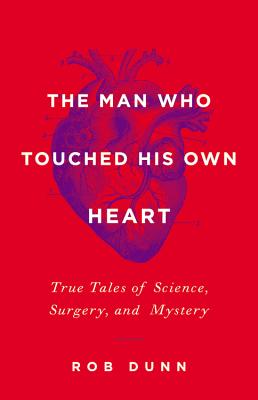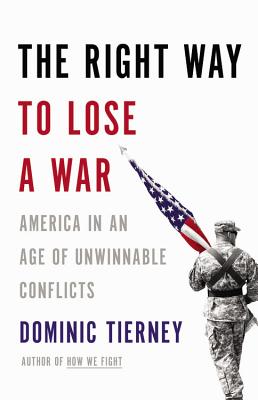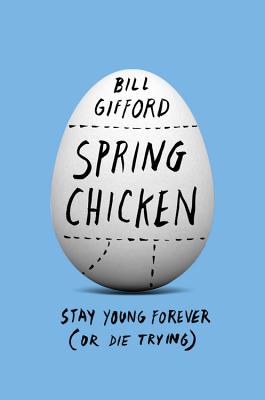On one evening in Washington, DC, several high-ranking members of government disappear in a mass kidnapping. Among the kidnapped is Nick Rendel, a computer software coding expert in charge of drone programming and strategy. He is the victim with the most dangerous knowledge, including confidential passwords and codes that are used to program the drones. If revealed, his kidnappers could reprogram the drones to strike targets within the United States.
Jon Smith and the Covert One team begin a worldwide search to recover the officials, but as the first kidnapping victims are rescued, they show disturbing signs of brainwashing or mind-altering drugs. Smith's investigation leads him to Fort Detrick, where a researcher, Dr. Laura Taylor, had been attempting to create a drug to wipe memory from soldiers suffering from post-traumatic stress syndrome. But Dr. Taylor's research was suspended almost a year ago, when she was placed in a mental institution. Now, if Smith doesn't figure out the brainwashing drug, and track down the kidnapped Nick Rendel, the kidnappers will soon have the power to carry out drone strikes anywhere in the world....
Jon Smith and the Covert One team begin a worldwide search to recover the officials, but as the first kidnapping victims are rescued, they show disturbing signs of brainwashing or mind-altering drugs. Smith's investigation leads him to Fort Detrick, where a researcher, Dr. Laura Taylor, had been attempting to create a drug to wipe memory from soldiers suffering from post-traumatic stress syndrome. But Dr. Taylor's research was suspended almost a year ago, when she was placed in a mental institution. Now, if Smith doesn't figure out the brainwashing drug, and track down the kidnapped Nick Rendel, the kidnappers will soon have the power to carry out drone strikes anywhere in the world....
The secret history of our most vital organ--the human heart
The Man Who Touched His Own Heart tells the raucous, gory, mesmerizing story of the heart, from the first "explorers" who dug up cadavers and plumbed their hearts' chambers, through the first heart surgeries-which had to be completed in three minutes before death arrived-to heart transplants and the latest medical efforts to prolong our hearts' lives, almost defying nature in the process.
Thought of as the seat of our soul, then as a mysteriously animated object, the heart is still more a mystery than it is understood. Why do most animals only get one billion beats? (And how did modern humans get to over two billion-effectively letting us live out two lives?) Why are sufferers of gingivitis more likely to have heart attacks? Why do we often undergo expensive procedures when cheaper ones are just as effective? What do Da Vinci, Mary Shelley, and contemporary Egyptian archaeologists have in common? And what does it really feel like to touch your own heart, or to have someone else's beating inside your chest?
Rob Dunn's fascinating history of our hearts brings us deep inside the science, history, and stories of the four chambers we depend on most.
The Man Who Touched His Own Heart tells the raucous, gory, mesmerizing story of the heart, from the first "explorers" who dug up cadavers and plumbed their hearts' chambers, through the first heart surgeries-which had to be completed in three minutes before death arrived-to heart transplants and the latest medical efforts to prolong our hearts' lives, almost defying nature in the process.
Thought of as the seat of our soul, then as a mysteriously animated object, the heart is still more a mystery than it is understood. Why do most animals only get one billion beats? (And how did modern humans get to over two billion-effectively letting us live out two lives?) Why are sufferers of gingivitis more likely to have heart attacks? Why do we often undergo expensive procedures when cheaper ones are just as effective? What do Da Vinci, Mary Shelley, and contemporary Egyptian archaeologists have in common? And what does it really feel like to touch your own heart, or to have someone else's beating inside your chest?
Rob Dunn's fascinating history of our hearts brings us deep inside the science, history, and stories of the four chambers we depend on most.
A provocative blueprint for how the United States can successfully disengage from failing wars without compromising its core values or interests.
For a century, the United States steadily accumulated a string of military triumphs. But since 1945 the onslaught of failures and stalemates in Korea, Vietnam, Iraq, and Afghanistan has exposed the country's inability to change course after battlefield setbacks---with grave consequences for thousands of American soldiers and our allies. The Right Way To Lose A War provocatively explains how America can draw failed campaigns to a close without compromising its core values through three specific steps---surge, talk, and leave. The Right Way To Lose A War is an essential guidebook for life in an era of unwinnable conflicts, a book made necessary not only by Iraq and Afghanistan, but the future quagmires that may yet come.
For a century, the United States steadily accumulated a string of military triumphs. But since 1945 the onslaught of failures and stalemates in Korea, Vietnam, Iraq, and Afghanistan has exposed the country's inability to change course after battlefield setbacks---with grave consequences for thousands of American soldiers and our allies. The Right Way To Lose A War provocatively explains how America can draw failed campaigns to a close without compromising its core values through three specific steps---surge, talk, and leave. The Right Way To Lose A War is an essential guidebook for life in an era of unwinnable conflicts, a book made necessary not only by Iraq and Afghanistan, but the future quagmires that may yet come.
From acclaimed journalist Bill Gifford comes a roaring journey into the world of anti-aging science in search of answers to a universal obsession: what can be done about getting old?
Spring Chicken is a full-throttle, high-energy ride through the latest research, popular mythology, and ancient wisdom on mankind's oldest obsession: How can we live longer? And better? In his funny, self-deprecating voice, veteran reporter Bill Gifford takes readers on a fascinating journey through the science of aging, from the obvious signs like wrinkles and baldness right down into the innermost workings of cells. We visit cutting-edge labs where scientists are working to "hack" the aging process, like purging "senescent" cells from mice to reverse the effects of aging. He'll reveal why some people live past 100 without even trying, what has happened with resveratrol, the "red wine pill" that made headlines a few years ago, how your fat tissue is trying to kill you, and how it's possible to unlock longevity-promoting pathways that are programmed into our very genes. Gifford separates the wheat from the chaff as he exposes hoaxes and scams foisted upon an aging society, and arms readers with the best possible advice on what to do, what not to do, and what life-changing treatments may be right around the corner.
An intoxicating mixture of deep reporting, fascinating science, and prescriptive takeaway, Spring Chicken will reveal the extraordinary breakthroughs that may yet bring us eternal youth, while exposing dangerous deceptions that prey on the innocent and ignorant.
Spring Chicken is a full-throttle, high-energy ride through the latest research, popular mythology, and ancient wisdom on mankind's oldest obsession: How can we live longer? And better? In his funny, self-deprecating voice, veteran reporter Bill Gifford takes readers on a fascinating journey through the science of aging, from the obvious signs like wrinkles and baldness right down into the innermost workings of cells. We visit cutting-edge labs where scientists are working to "hack" the aging process, like purging "senescent" cells from mice to reverse the effects of aging. He'll reveal why some people live past 100 without even trying, what has happened with resveratrol, the "red wine pill" that made headlines a few years ago, how your fat tissue is trying to kill you, and how it's possible to unlock longevity-promoting pathways that are programmed into our very genes. Gifford separates the wheat from the chaff as he exposes hoaxes and scams foisted upon an aging society, and arms readers with the best possible advice on what to do, what not to do, and what life-changing treatments may be right around the corner.
An intoxicating mixture of deep reporting, fascinating science, and prescriptive takeaway, Spring Chicken will reveal the extraordinary breakthroughs that may yet bring us eternal youth, while exposing dangerous deceptions that prey on the innocent and ignorant.
Every autumn, Kenny Porpora would watch his heartbroken mother scribble messages on balloons and release them into the sky above Long Island, one for each family member they'd lost to addiction. As the number of balloons grew, his mother fell deeper into alcoholism, drinking away her sorrows every night in front of the television, where her love of Regis Philbin provided a respite from the sadness around her.
When their house was foreclosed upon, Kenny's mother absconded with him and his beloved dog and fled for the Arizona desert, joining her heroin-addicted brother on a quixotic search for a better life. What followed was an outlaw adolescence spent in constant upheaval surrounded by bizarre characters and drug-addicted souls.
In the wake of unspeakable loss, Kenny convinced a college to take a chance on him, and turned to the mentors, writers, and poets he found to rebuild the family he lost, and eventually graduated from the Ivy League with a new life.
Porpora's memoir is the story of a deeply dysfunctional but loving family, and follows his life from the chaos of his youth to his triumphs in the Ivy League. At times darkly comic, at times elegiac, The Autumn Balloon is a beautifully written testament to the irreplaceable bonds of family, even under the most trying circumstances, and one that marks the debut of an exciting new writer.
When Amelia Morris saw a towering, beautiful chocolate cake in Bon Appétit and took the recipe home to recreate it for a Christmas day brunch she was hosting, it resulted in a terrible (but tasty) mess that had to be served in an oversize bowl. It was also a revelation. Both delicious and damaged, it seemed a physical metaphor for the many curious and unexpected situations she's found herself in throughout her life, from her brief career as a six-year-old wrestler to her Brady Bunch-style family (minus the housekeeper and the familial harmony) to her ill-fated twenty-something job at the School of Rock in Los Angeles.
As a way to bring order to chaos and in search of a more meaningful lifestyle, she finds herself more and more at home in the kitchen, where she begins to learn that even if the results of her culinary efforts fall well short of the standard set by glossy food magazines, they can still bring satisfaction (and sustenance) to her and her family and friends.
Full of hilarious observations about food, family, unemployment, romance, and the extremes of modern L.A., and featuring recipes as basic as Toasted Cheerios and as advanced as gâteau de crêpes, Bon Appetempt is sure to resonate with anyone who has tried and failed, and been all the better for it.






No comments:
Post a Comment